Importing Reishi mushroom extract from China can be a strategic move for supplement brands worldwide. However, without a clear understanding of the industry landscape, regulations, and supplier capabilities, it can also lead to significant missteps. This guide identifies the top five mistakes to avoid to ensure a smooth, compliant, and profitable import experience.
1. Neglecting Supplier Verification
One of the biggest errors is working with an unverified or inexperienced China Reishi mushroom extract factory. While the country is a leading exporter of herbal extracts, not all factories meet international standards.
Request GMP, ISO, or USDA Organic certifications upfront
Conduct virtual or in-person audits when possible
Ask for references and prior export records
Evaluate their experience with your target market regulations
Failing to perform due diligence may lead to inconsistent quality, missed deadlines, or even regulatory bans.
2. Overlooking Product Specifications
Many buyers focus solely on price, ignoring the composition and quality of the Reishi extract. For Reishi extract for supplement manufacturing, consistency in active compounds like polysaccharides and triterpenes is essential.
Request a full Certificate of Analysis (COA), and ensure the product is tested for heavy metals, microbial contamination, and residual solvents. A reputable bulk Reishi extract supplier will provide third-party test results to support product claims.
3. Misunderstanding Import and Regulatory Requirements
Every country has specific import rules for herbal extracts. Documentation such as COAs, MSDS, and phytosanitary certificates may be required. Products lacking these can face customs delays or rejection.
Partnering with an experienced supplier can help you navigate these challenges. Suppliers that regularly buy Reishi extract powder wholesale and export globally are more likely to be familiar with international documentation standards.
4. Inadequate Contract Terms and Incoterms
Ambiguity in purchase agreements can lead to financial or legal disputes. Clarify all aspects of the transaction:
Incoterms (e.g., FOB, CIF)
Lead times and delivery dates
Product specifications and packaging requirements
Penalties for non-compliance or delays
A clear contract protects both buyer and seller and ensures mutual accountability.
5. Ignoring Certifications and Consumer Expectations
Modern consumers demand transparency and quality. If you intend to sell in premium markets, sourcing organic Reishi dual extract for export is crucial. Dual-extracted products retain a fuller spectrum of bioactives and appeal to clean-label demands.
Organic and non-GMO certifications not only ease entry into strict regulatory markets but also add significant marketing value.
Conclusion
Importing Reishi extract from China can yield high returns if done properly. By avoiding the common pitfalls of poor supplier vetting, incomplete documentation, and unclear agreements, brands can secure reliable products and build lasting partnerships. Focus on compliance, quality, and transparency to ensure your imports support your long-term brand goals.
Read More:
Reishi Mushroom Extract: A Growing Opportunity in the Functional Ingredient Market
Hangzhou Molai Biotech Co., Ltd has supply capacity 1200+ tons per year for mushroom powders and extracts, including the mushroom mycelium from modern technology of Deeply Liquid Fermentation and fruiting bodies from the grown real mushrooms to meet the different markets.
Hangzhou Molai Biotech Co., Ltd supplies the products both in Powders and Extracts for commercial using worldwidely, such as Cordyceps Sinensis, Cordyceps Militaris, Maitake Mushroom, Lion’s Mane Mushroom, Turkey Tail Mushroom, Reishi Mushroom, Chaga Mushroom etc.
We offer OEM and ODM services, could extract the products according to your special requirements, process the powders/extracts into Capsules, Tablets, Small Bags, Mushroom Bars, Mushroom Coffee etc.
Organic Lion's Mane Mushroom Extract
Organic Reishi Mushroom Extract
Organic Cordyceps Militaris Extract
Organic Turkey Tail Mushroom Extract
Organic Chaga Mushroom Extract
Organic Shiitake Mushroom Extract
Organic Maitake Mushroom Extract
Organic Tremella Mushroom Extract

_GBIJ5Y.jpg)




